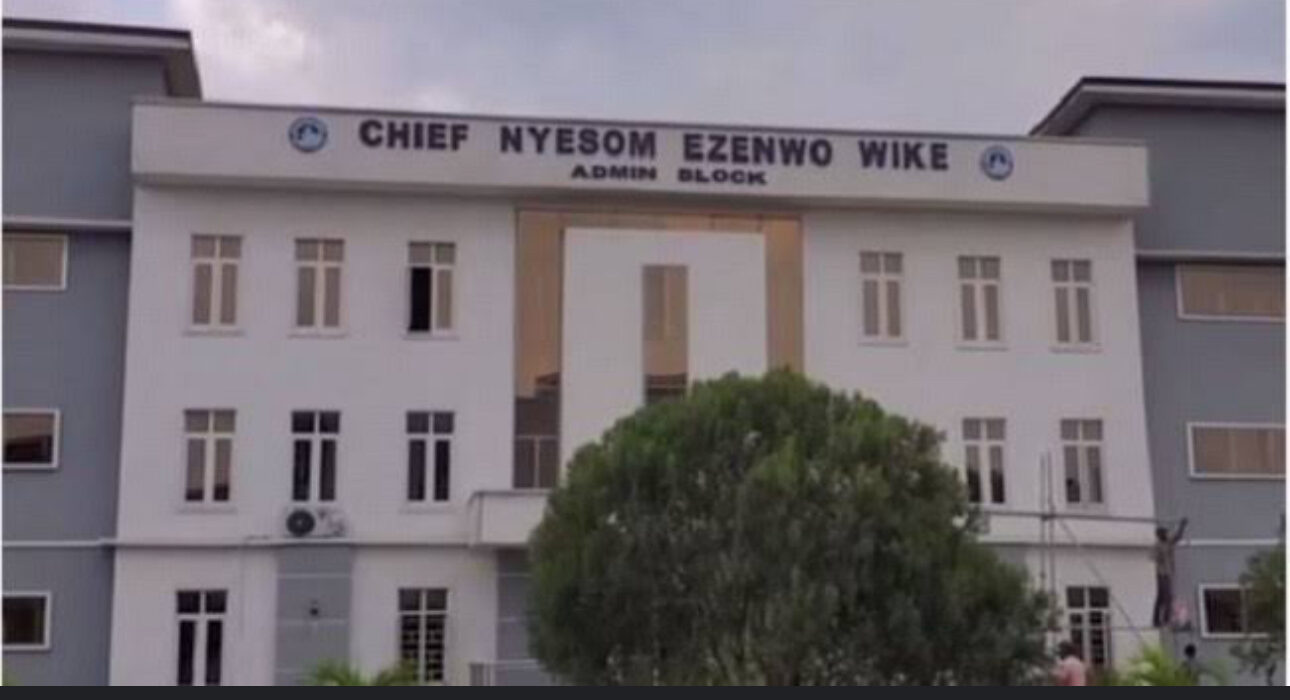Rivers LG Administrator Restores Wike’s Name at Obio/Akpor Secretariat

In a political move, the Sole Administrator of Obio/Akpor Local Government Area, Dr. Ndu Walter, has reinstated the name of former Rivers State Governor, Nyesom Wike, on the administrative block of the council secretariat.
This action reverses a controversial decision taken last year amid deepening political tensions in the state.
The building, previously named the “Nyesom Wike Administrative Block,” had been renamed in October 2024 by then Local Government Chairman, Chijioke Ihunwo, who replaced Wike’s name with that of late Senator Dr. Obi Wali, a prominent minority rights activist and hero of the Ikwerre people. Ihunwo’s decision came during a period of strained relations between Governor Siminalayi Fubara and his predecessor, Nyesom Wike, as the two power blocs vied for control of Rivers State’s political machinery.
The restoration of Wike’s name by Dr. Walter comes in the wake of major political developments. In March 2025, President Bola Tinubu suspended Governor Fubara and appointed Retired Vice Admiral Ibok-Ete Ibas as the state’s Sole Administrator, citing concerns over governance and deep-seated political instability.
Shortly afterward, Dr. Ndu Walter—widely known as a political ally of Wike—was appointed to head the Obio/Akpor Local Government Area.
At the reinstatement ceremony, which drew local political figures, council staff, and community leaders, Dr. Walter stated that the restoration was not merely symbolic but “a correction of a political misstep that disrespected the legacy of a man who served the state diligently.”
He emphasized Wike’s contributions to the development of Obio/Akpor and the broader Rivers State during his time in office as justification for the move.
Political analysts see this development as emblematic of the ongoing battle for influence in Rivers politics, where Wike’s faction is reasserting itself following months of tension with the Fubara administration.
Supporters of Wike welcomed the move, calling it a step toward political reconciliation and historical accuracy. However, critics argue that such symbolic actions do little to address the governance and leadership concerns facing the state.
As Rivers State continues to navigate its turbulent political terrain, actions like the renaming of buildings—and the power struggles behind them—underscore the deep divisions and high stakes in the region’s political future.









